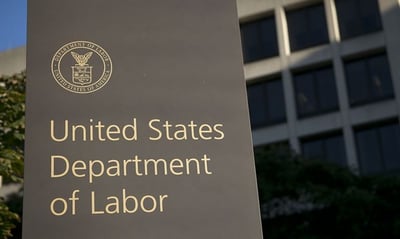 As a follow up to our previous post "Fiduciary Rules? Or April Fools...", The Department of Labor’s regulations, aimed at curbing abusive fee practices in regards to the management of IRA, 401(k) and HSA accounts, was finally released on April 5th. The draft regulations released for comment earlier in the year were tough, substantive and had teeth.
As a follow up to our previous post "Fiduciary Rules? Or April Fools...", The Department of Labor’s regulations, aimed at curbing abusive fee practices in regards to the management of IRA, 401(k) and HSA accounts, was finally released on April 5th. The draft regulations released for comment earlier in the year were tough, substantive and had teeth.
However, the final regulations, just released, are virtually meaningless as a consumer protection and may even be softened. Compliance with the regulations is phased in over eighteen months and, as such, the regulations may be subject to amendment or repeal by a new administration in 2017.
The Fiduciary Rule requires that the advisor always put the client’s interests first and investment decisions must reflect the most optimal arrangement available for the client. Registered Investment Advisors, such as Carnegie, are bound by the Fiduciary Rule. (Read more about fiduciaries here.)
Broker-Dealers historically have had a lower level of duty known as the Suitability Rule. The Suitability Rule basically states that the customer can be sold an investment so long as it is suitable. Under the Suitability Rule, many firms sold clients proprietary products with high fees and commissions. In many cases the advisor’s commission earnings dictated what he sold to clients, not what was in the best interest of their client. (More on suitability.)
While we at Carnegie had hoped that the new regulations would have required all investment management companies, insurance companies, financial planners and broker-dealers to provide total compliance to the Fiduciary Rule, as well as provide clear and complete disclosure of investment costs to individuals, the regulations, as released, doesn’t change very much.
Existing accounts are largely left untouched and previously conducted transactions with the public will not require a lookback.
The Wall Street Journal summed it up:
“Mutual fund families, retirement plan architects, broker-dealers, insurance companies and the registered reps in the trenches will all sleep easily tonight. Virtually all of the products they sell, where conflicts are a given, will still be allowed under the new rule so long as additional disclosures are made and a “Best Interest Contract Exemption” (BICE) is signed off on by the client. This will be no trouble at all: Just picture the speed with which you click “Agree” every time iTunes does a software update, and you can imagine how little of an impediment this sort of thing represents. Existing clients who’ve already been sold a product that requires a BICE will merely need to receive a written notification rather than have to re-paper their accounts.”
The Administration basically caved to special interests and the regulations are a sophistry. We anticipate that, in short order, those who were involved with the final regulations will be employed by those whose nefarious practices they were charged with actually reigning in.
Coming Up
Each month, Carnegie hosts educational events for clients, friends and the community. Visit our Events page to register to attend.



